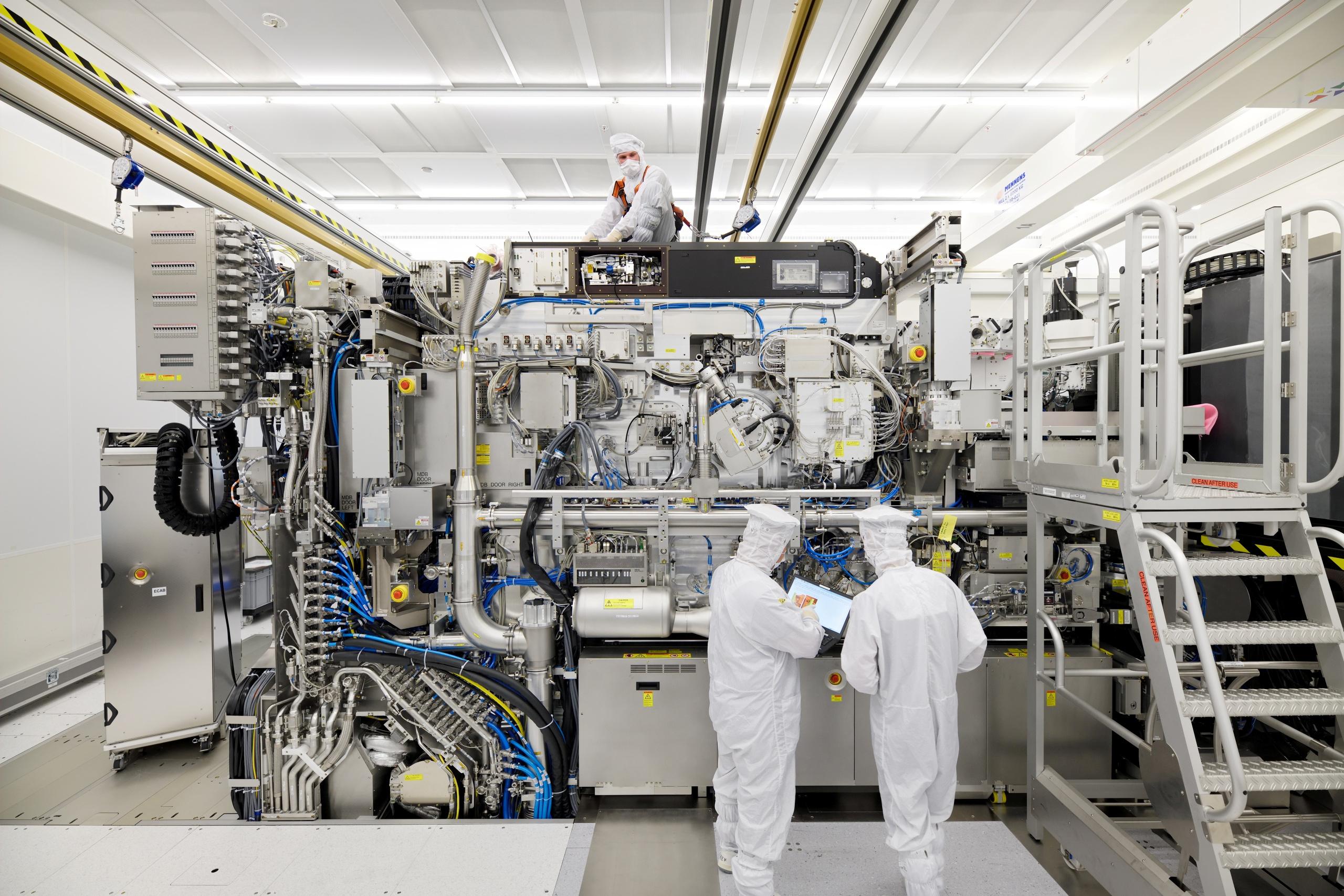

ASML's TWINSCAN NXE:3400B semiconductor lithography tool. Image credit: ASML
A company at the centre of the global semiconductor industry has worried industry players and observers, with a downgraded forecast.
Netherlands-based ASML Holdings on Tuesday warned that it expects net sales for 2025 to come in at the lower half of a range it had previously provided, and its CFO Roger Dassen compounded matters when he told analysts that ASML expects China sales to fall next year, with one of the reasons being the US export restrictions to that country.
The ASML warning showcases the fragile state of the supply chain for the global semiconductor industry, and the possible implications of Washington’s tightening restrictions on the export of advanced manufacturing tools to China.
The ASML warning pushed its share price down to their biggest one-day drop since 1998, with shares down nearly 6 percent at $687.73 as of Wednesday afternoon.
The price of other chip firms also fell, including AMD, Nvidia, Intel, ARM, Broadcom and Micron. Their share price reportedly fell between 3.2 percent and 5 percent on Tuesday.
Reuters noted that ASML said that despite a boom in AI-related chips, other parts of the semiconductor market are weaker for longer than expected, leading companies that make logic chips to delay orders and customers that make memory chips to only plan “limited” new capacity additions.
“We expect our 2025 total net sales to grow to a range between 30-35 billion euros, which is the lower half of the range” previously forecast, chief executive Christophe Fouquet reportedly said in a statement.
Chip market weakness “is expected to continue in 2025, which is leading to customer cautiousness”, he reportedly added.
ASML is Europe’s most valuable technology company, and it’s earnings showed a net profit of 2.1 billion euros on sales of 7.5 billion euros ($8.2 billion), slightly ahead of analyst estimates.
But the company’s bookings were 2.6 billion euros, well below forecasts that had ranged between 4 billion euros and 6 billion euros.
The chip sector is especially jittery at the moment, after a scare last week about the impact of Hurricane Helene on the eastern seaboard of the United States.
In particular Hurricane Helene badly impacted a US town considered vital to the semiconductor industry.
The US town is called Spruce Pine in Western North Carolina, where the local mines produce sand (i.e. high quality feldspar and quartz deposits).
Semiconductors are made primarily of silicon (i.e. processed quartz), and the high purity quartz from Spruce Pine is so pure that it is widely used for ‘crucibles’ in the semiconductor manufacturing process.
Russian court finds Google liable for YouTube video allegedly disclosing personal data on Russian casualties…
Latest CATL sodium-ion batteries have energy density and range closer to lithium-ion units using cheap…
Amazon's AWS cloud unit pauses some leasing talks around new data centres, analysts say, in…
US trade regulator says Uber signed users up for Uber One plan without their knowledge,…
Appeals court ruling reopens case that had been dismissed, finding Shopify must face trial under…
US Justice Department lawyers argue Google must face wide-ranging remedies including selling off Chrome, with…